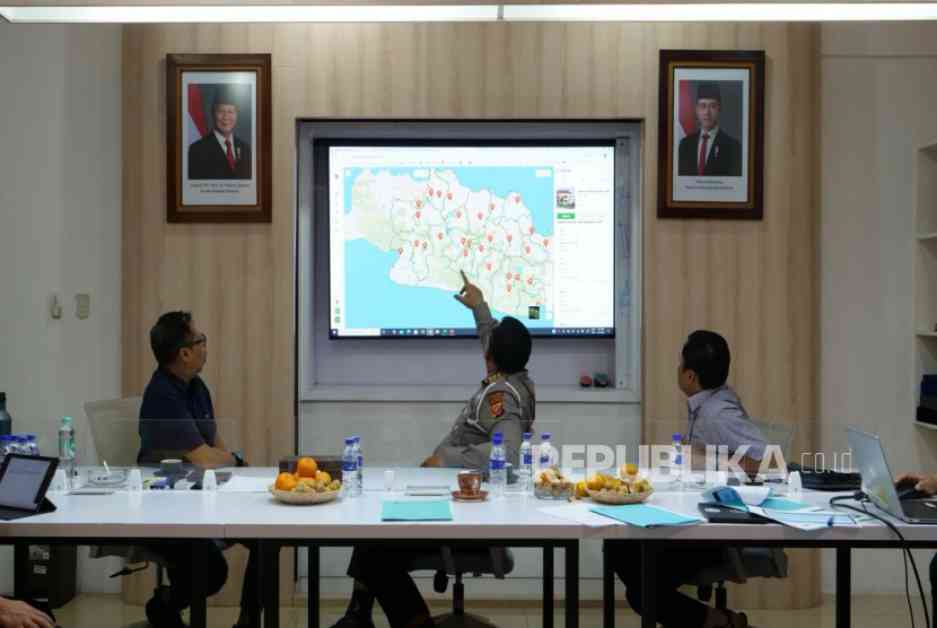The provincial government of West Java is facing a significant challenge as over 5 million vehicles in the region are delinquent on their motor vehicle taxes. In response to this staggering number, the Strategic Supervisory Team has devised a plan to tackle the issue and reduce the number of tax arrears. By prioritizing innovation and service efficiency, the team aims to focus on enhancing the data collection process to address the problem head-on.
As stated by Dedi Taufik, the Head of the West Java Regional Revenue Agency (Bapenda), the total potential active motor vehicle tax in West Java amounts to 17,032,596 units. Of this figure, 14,114,056 are two-wheeled vehicles, with the remaining 2,918,540 being four-wheeled motor vehicles. With approximately 5 million vehicles yet to pay their taxes, there is a clear need to increase public awareness and compliance with motor vehicle tax regulations. Dedi Taufik emphasized the importance of driving down these numbers to ensure tax revenue is collected effectively.
In 2024, Bapenda’s performance exceeded expectations, with total local revenue surpassing Rp 36 trillion. This revenue was derived from various sources, including Rp 24.88 trillion from the Regional Original Revenue (PAD), Rp 11.38 trillion from Transfer Revenue, and Rp 23.19 billion from other legitimate local revenues. A significant portion of this revenue, amounting to Rp 9.48 trillion, came from motor vehicle taxes, highlighting the importance of increasing public awareness and compliance with tax payment obligations.
Collaborative Strategies for Tax Compliance
To address the issue of delinquent taxpayers, the West Java Strategic Supervisory Team has initiated a series of collaborative strategies in 2025. By combining a human-centered approach with firm enforcement measures, the team aims to implement a range of initiatives to encourage tax compliance and streamline payment processes. One of the key strategies involves conducting door-to-door searches for vehicles that have not undergone re-registration, with dedicated agents working in every district and city.
Additionally, joint operations to inspect motor vehicle taxes across all regions in West Java will be carried out in collaboration with the Strategic Supervisory Team. Special operations will also be conducted to enforce Article 74 of Law No. 22/2009 on the elimination of vehicle data discrepancies in all districts and cities under the jurisdiction of the team.
Furthermore, efforts will be made to enhance the digitalization of annual motor vehicle tax payment services, including billing and tax confirmation through WhatsApp blasts. Collaboration with ETLE Lodaya (West Java Regional Police) will ensure that drivers who receive fines and are in arrears will be promptly notified of their tax payment obligations.
The Importance of Public Awareness and Collaboration
Ruminio Ardano, the Director of Traffic at the West Java Regional Police, emphasized the critical role of public awareness and compliance in increasing tax revenue. He highlighted the importance of collaboration between various stakeholders, including the provincial government, local authorities, the police, and Jasa Raharja, to ensure effective data collection and enforcement of tax regulations.
A proactive approach involving extensive public outreach and education at the community level will be crucial in fostering a culture of tax compliance. By emphasizing the significance of tax payment and improving service accessibility through initiatives such as mobile tax offices and digital payment options, authorities aim to make the process more convenient and transparent for taxpayers.
Ruminio stressed that while law enforcement is a last resort, the primary focus of the 12-step strategy is on a human-centered approach. By prioritizing the protection of citizens through vehicle registration and compliance, law enforcement agencies can contribute to broader societal benefits beyond tax collection.
He also highlighted the collaborative efforts between Bapenda, Jasa Raharja, and the West Java Regional Police in conducting comprehensive data collection from the provincial level down to individual police stations. This coordinated approach aims to identify vehicles involved in legal cases, traffic violations, criminal activities, and accidents, ensuring thorough compliance with tax regulations and law enforcement protocols.














